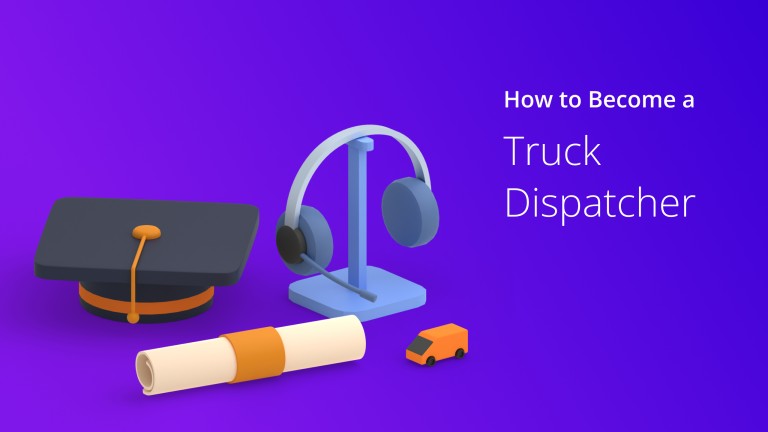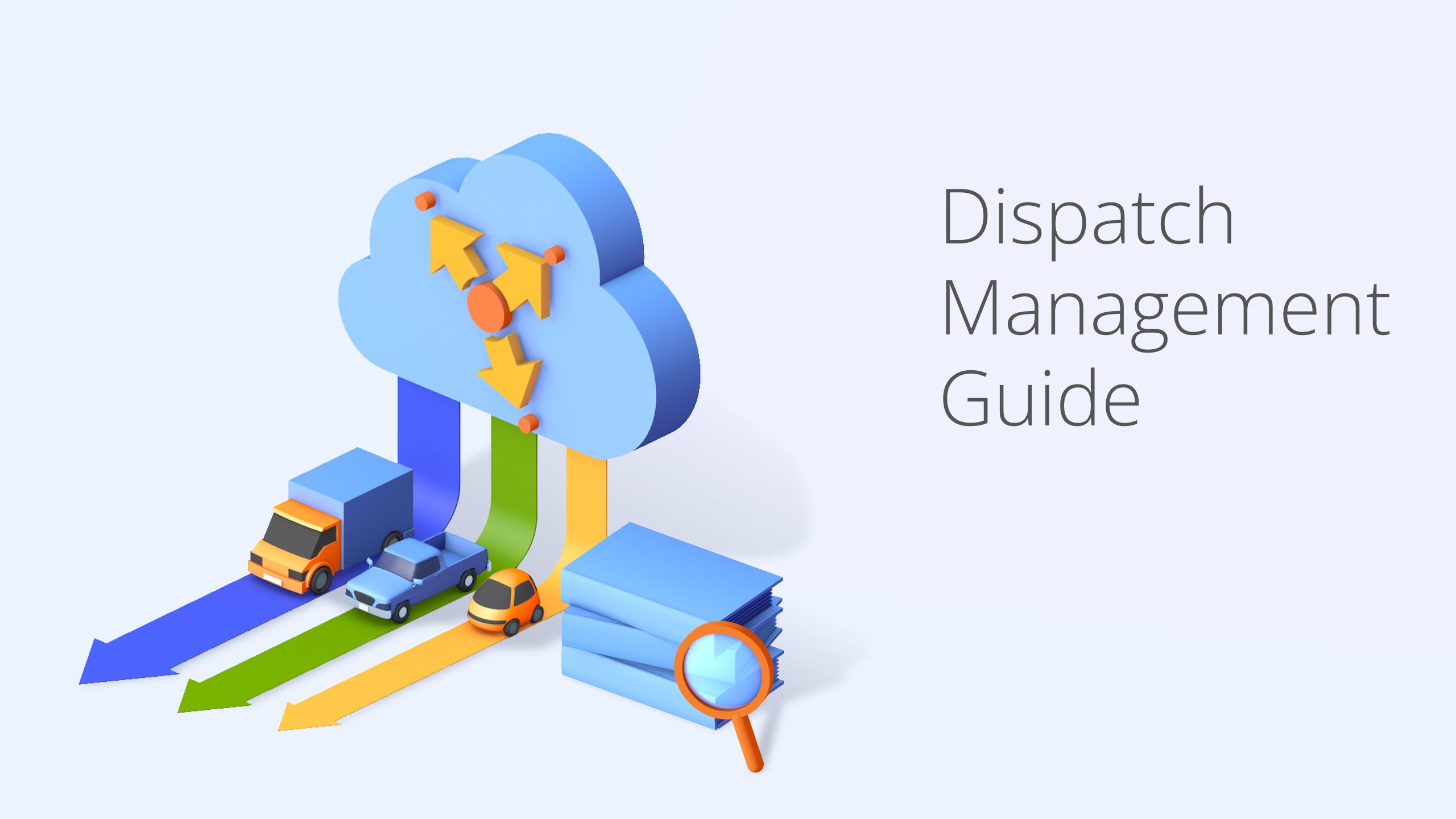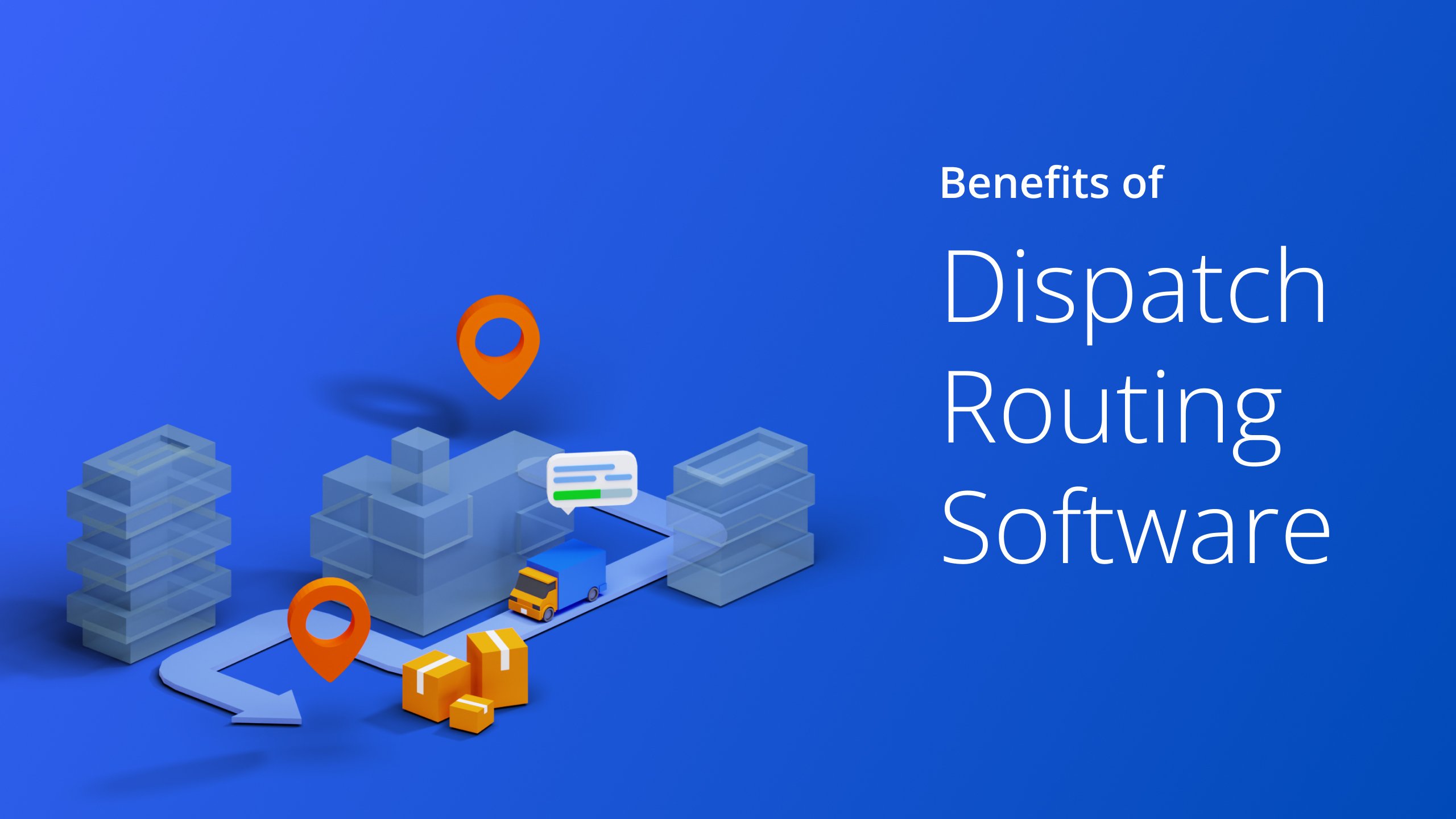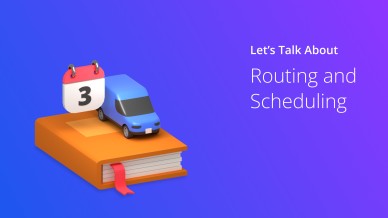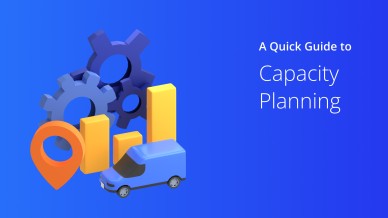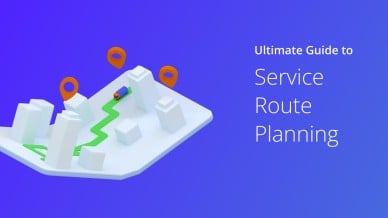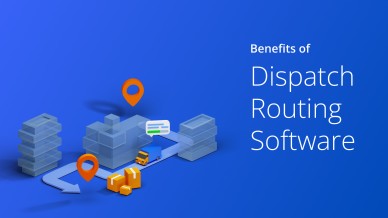Do you want to work with truck drivers and delivery services? Do you have good time-management and interpersonal skills?
If you answered “yes,” a truck dispatcher job might be perfect for you.
Truck Dispatchers are responsible for optimizing transportation routes and planning delivery arrangements between vendors and buyers.
Learn how to become a truck dispatcher by checking this in-depth guide our team has prepared for you.
Truck Route Navigation App

Table of Contents
Why Should You Become a Truck Dispatcher?
Business strategist and author Simon Sinek always advises to ‘Start with Why.’ Find out why you want to do what you want rather than looking for how and what to do.
So, before learning to become a truck dispatcher, you must know why you want to become a freight dispatcher. And here are eight reasons for that.
- Higher pay than truck drivers and other trucking professionals. You can expect competitive salaries that depend on experience and dispatched team size.
- No physical labor requirement.
- You have the freedom to work either from home or an office.
- You can decide your work schedule, as neither nights nor weekends are usually required.
- You don’t need long-haul truckers’ health or physical fitness because the job is primarily desk-based.
- Make a positive difference in truckers’ day-to-day lives by providing optimized routes that save time and costs while encouraging safe driving practices.
- Opportunity to climb up the ladder in your career. Many freight dispatchers become business owners, office managers, and transportation executives later in their careers.
- Truck dispatching is an opportunity to exercise organizational skills while improving your problem-solving abilities as you handle, at times demanding, situations efficiently and promptly.
Job Responsibilities of a Freight Dispatcher
Trucking dispatchers play an essential role in freight transportation as they assign tasks to drivers, ensure their tasks are completed efficiently and on time, and stay in contact with assigned drivers at all times. Here are some detailed roles and responsibilities of a trucking dispatcher.
- Freight dispatchers must assign drivers to appropriate loads based on their truck’s weight and size capacity and update any deliveries or changes related to the driver’s route.
- They must also maintain a record of truck maintenance schedules, order parts when necessary, take care of billing issues, resolve customer disputes and communicate effectively with truck drivers about any changes.
- Freight dispatchers must ensure that all schedules are met successfully and that there are zero scheduling and freight issues. This can be done by planning efficient routes, monitoring and coordinating truck fleets to reduce delivery delays or deviations from the scheduled routes, and planning ahead for route modifications or any contingencies that may arise.
- The truck dispatcher must also be familiar with routing software to plan optimized routes and distribute a balanced workload to truck drivers.
- In addition to these core jobs, truck dispatchers can manage customer relationships by following up on deliveries while working with customers to ensure they are satisfied with the quality of service and delivery times.
- If a customer complains or has an issue with a shipment, a truck dispatcher investigates further and resolves any conflicts.
- Truck dispatchers are responsible for filing reports on time — including truck drivers logs regarding truck miles driven daily — so employers can assess how efficiently operations are running.
6 Ways To Become An Entry-Level Truck Dispatcher
1. Meet The Required Qualifications
It is easy to become an entry-level truck dispatcher when you only aim to be a truck dispatcher for a company, not an independent truck dispatcher.
Companies only require a high school diploma or a GED (Graduate Equivalency Degree or General Education Diploma.)
2. Refine Your Skills
With no experience in truck dispatching, the best thing you can offer a company is your skills. Refine them to gain an edge against other applicants.
Time management, communication & interpersonal, technical expertise, adaptability, and analytical skills are sought by companies in their applicants.
3. Keep Up With The Latest Industry Trends
Truck dispatchers must be updated with the latest industry trends. This includes being flexible with new technology and using them during route planning.
To start, you can study the company’s existing system, technology, and strategies and compare and examine your competitors’ techniques.
4. Get Training On Basic Dispatching
Truck dispatchers of different companies have their own techniques and technology. Some companies offer basic training for their accepted applicants.
If you can, search for free training and programs on basic dispatching to have the edge over other applicants.
5. Learn & Understand Truck Dispatch Software
One of the most challenging parts of being an entry-level truck dispatcher is learning the different types of truck dispatching software.
There is no “one-size-fits-all” regarding the best truck routing software since technology always evolves, and companies try to keep up with it.
Also, these companies opt for the technology that suits their business needs.
6. Choose Your Target Employers Strategically
Choosing your first employer will greatly influence your career path because they will be the first people who will teach you the fundamentals.
It is important to learn the right way since a truck dispatcher’s career depends on the individual’s skills and training experience.
An employer that cares about their workers will teach them the basics and nurture them to become successful.
How to Become an Independent Truck Dispatcher
Becoming an independent truck dispatcher is no different from being a company dispatcher. You need to have similar education and skillset to excel at your work.
However, because you will be on your own, you need to go the extra mile to ensure you are financially sound, abide by all the state and federal laws for businesses and make significant revenue and profits.
Here are some steps you must follow to start operating as an independent dispatcher:
Name Your Business
Consider the following when selecting a name for your own business:
- The name should be concise yet descriptive enough that potential customers can understand your services.
- Make sure the name stands out among competitors and is noticeable.
- Try to choose a name that gives your business some brand identity and is memorable so customers can quickly return for more truck dispatch service.
Register Your Business
Once you have figured out the name of your business, apply for an Employer Identification Number (EIN) with the IRS, and decide on a business structure.
You can register your business as a sole proprietorship, limited liability company (LLC), partnership, or corporation.
Depending on the state you are operating out of, additional taxes and fees may need to be paid.
Once your independent company is registered, you must obtain a USDOT number to move goods between states within the U.S. and any supporting documents required by local governments.
Create Draft Contracts
Create a service agreement where you should state your pricing and dispatching services.
Also, have a dispatcher-carrier contract ready. This is to ensure the carrier’s insurance will safeguard your business from liability if something beyond your control goes sideways with the freight you negotiated.
Get Familiar with Truck Dispatch Software
It’s not enough to have the right skill and education. You must also learn to use cutting-edge truck dispatch software to improve performance.
Such software is designed to help independent truck dispatchers save time and money through accurate route analysis and optimization.
Here are several ways independent truck dispatchers can benefit from using mapping and scheduling software like Route4Trucks:
- Plan well-optimized multi-stop routes within a minute.
- Assign a balanced workload.
- Reduce deadhead miles and fuel costs.
- Track vehicles and drivers in real-time to detect deviations before they become costly incidents.
- Schedule deliveries weeks or months in advance.
- Monitor fuel costs and driver performance.
- Re-optimize routes to avoid delays due to any unanticipated circumstances.
The benefits of scheduling software do not end here. Here are several reasons why truck dispatchers should use routing software.
Truck Route Navigation App

Create a Website
Developing a professional website enables independent truck dispatchers to demonstrate their expertise and build trust with potential customers.
Your website should have detailed service offerings, contact information, a portfolio, testimonials from previous clients, and a clear call-to-action to encourage site visitors to reach out to you.
You should also include a blog section where you can publish articles on valuable topics. For example, an article on new laws that may affect independent truck dispatchers and their customers or how to choose the right truck dispatcher.
Use search engine optimization (SEO) techniques to drive organic website traffic. This can include creating content specific to the type of freight service provided and leveraging keywords throughout the website copy.
You don’t need to create a fancy website with many pages to reflect all such information. Even a one-page site can do wonders if you include the correct information in the right place.
Build a Social Media Presence
As an independent truck dispatcher, promoting your business and maximizing potential profits requires strategic steps beyond traditional advertising.
A great way to begin this process is to take advantage of social media platforms like Facebook, Instagram, and YouTube.
Social media provides an excellent platform for independent truck dispatchers to create their own unique brand identity through direct interaction with those interested in the services they have to offer.
Stay active, post often, share helpful information, engage earned customers, and invest time into building relationships with your potential customers on social media.
You can even collaborate with trucking influencers to boost visibility and engagement on social media.
Start Networking
An independent truck dispatcher has no employer or higher authority to rely on for support, making it essential for them to develop strong networking skills.
Building personal connections with other independent dispatchers, truckers, brokers, and potential clients is critical to gaining access to exclusive requirements and customers and quickly finding fleets for high-priority shipments.
Additionally, having reliable contacts allows independent truck dispatchers to take on larger projects they may have needed help to do.
Dispatchers who can successfully forge relationships in their industry will also earn competitive wages and benefit from exceptional word-of-mouth marketing from satisfied customers.
Can You Be A Truck Dispatcher With No Experience?
It is not necessary to have an experience in truck dispatching when you apply for a job, but clients and companies will trust you more if you have prior experience working with trucks.
Just like any other job, dispatching trucks requires skills and experience. Companies highly encourage truck dispatchers to be experienced or at least pass the truck dispatcher tests.
Jobs such as freight broker or truck dispatcher assistant will help you gain more knowledge, practical skills, and experience that you can use in the truck dispatcher tests.
Enrolling in basic courses or attending seminars related to the job description could also give you a competitive advantage when applying for a job.
How Long Does It Take To Become A Successful Truck Dispatcher?
Depending on your career goal, being a successful truck dispatcher will take years. However, your investment is worth the wait because this job pays well and is in high demand today.
Truck dispatching requires great skills in handling people and business. You will also need to take tests and be certified to gain the trust of your clients.
Although it could take quite a while, becoming successful in this field is not impossible at all.
Frequently Asked Questions (FAQs) about truck dispatching
Is truck dispatching hard to learn?
What’s the educational requirement to become a truck dispatcher?
In Summary
Becoming a truck dispatcher is a good opportunity if you are looking to enter the trucking industry. Truck dispatchers are in high demand, and they have good pay as well.
However, the difficulty of being one depends on the individual’s learning capacity, including theories (or those you can learn from books, training, etc.) and practice.
If you’re looking forward to becoming a truck dispatcher, you’d need an efficient and effective route-planning app like Route4Me. Sign up here today and get a Get Started.
